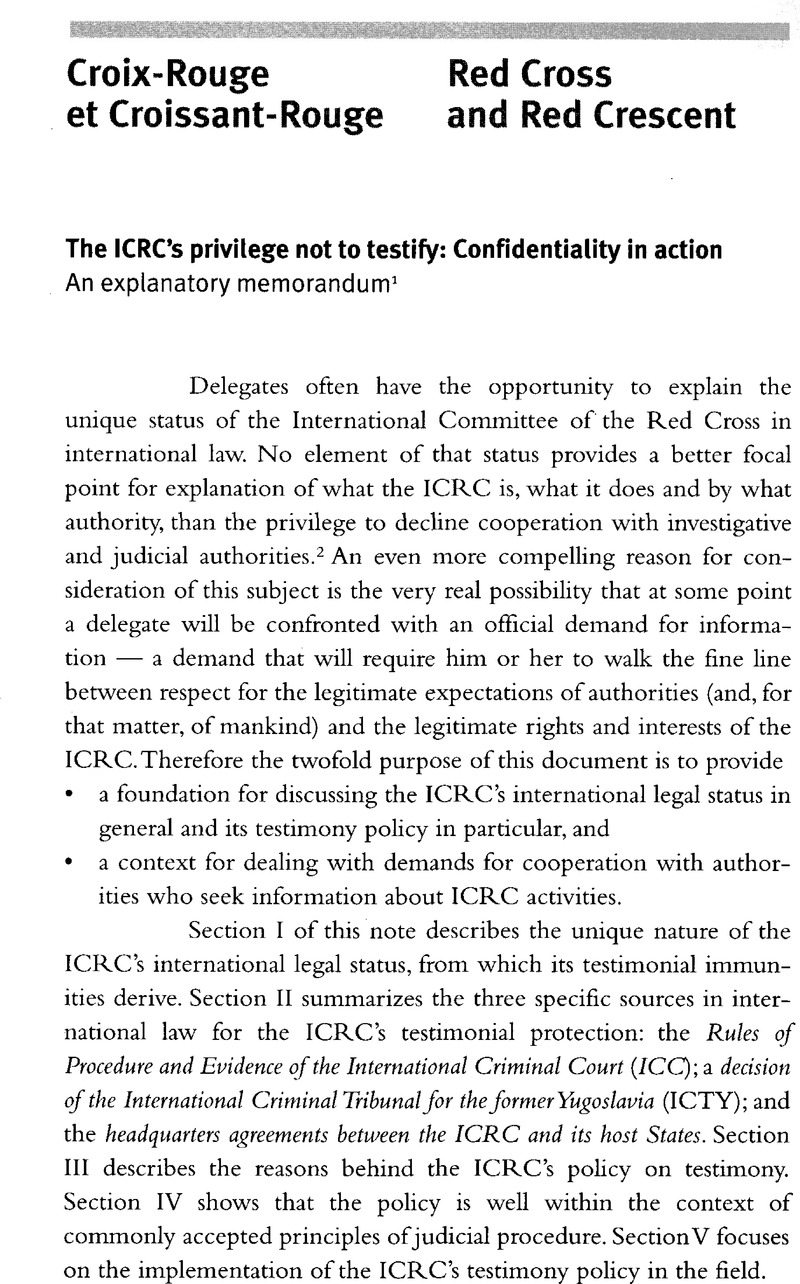Published online by Cambridge University Press: 19 April 2010

page 208 note 1 This memorandum has been prepared for ICRC delegates.
page 208 note 2 The terms “cooperation with investigative or judicial authorities”, “providing testimony”, “providing evidence” and the like are used interchangeably, although they each may have different implications in specific situations.
page 210 note 3 The terms “status agreement” and “headquarters agreement” are used interchangeably.
page 210 note 4 Rule 73, paras 4–6. See Annex 1. – For more on the negotiating history of Rule 73, see Jeannet, Stéphane, “Testimony of ICRC delegates before the International Criminal Court”, IRRC, No. 840, December 2000, pp. 993–1000Google Scholar.
page 211 note 5 IT-95-P.
page 211 note 6 As of October 2001.
page 211 note 7 For more on the ICTY Decision, see Jeannet, Stéphane, “Recognition of the ICRC's long-standing rule of confidentiality: An important decision by the International Criminal Tribunal for the former Yugoslavia”, IRRC, No. 838, June 2000, pp. 403–425Google Scholar.
page 211 note 8 It should also be noted that where the ICRC does not have a headquarters agreement, it may nevertheless claim a customary international law-based right to decline to provide evidence. The ICTY Decision may be cited as explicit support for this proposition, The ICC Rule may also be cited as evidence of the legal opinion of the 139 Signatory States which, either through the work of the ICC Preparatory Commission or by their subsequent ratification of the Rome Statute, recognize testimonial protection for the ICRC.
page 216 note 1 Draft text: UN Doc. PCNICC/2000/Add.1. To be approved by the Assembly of States Parties.